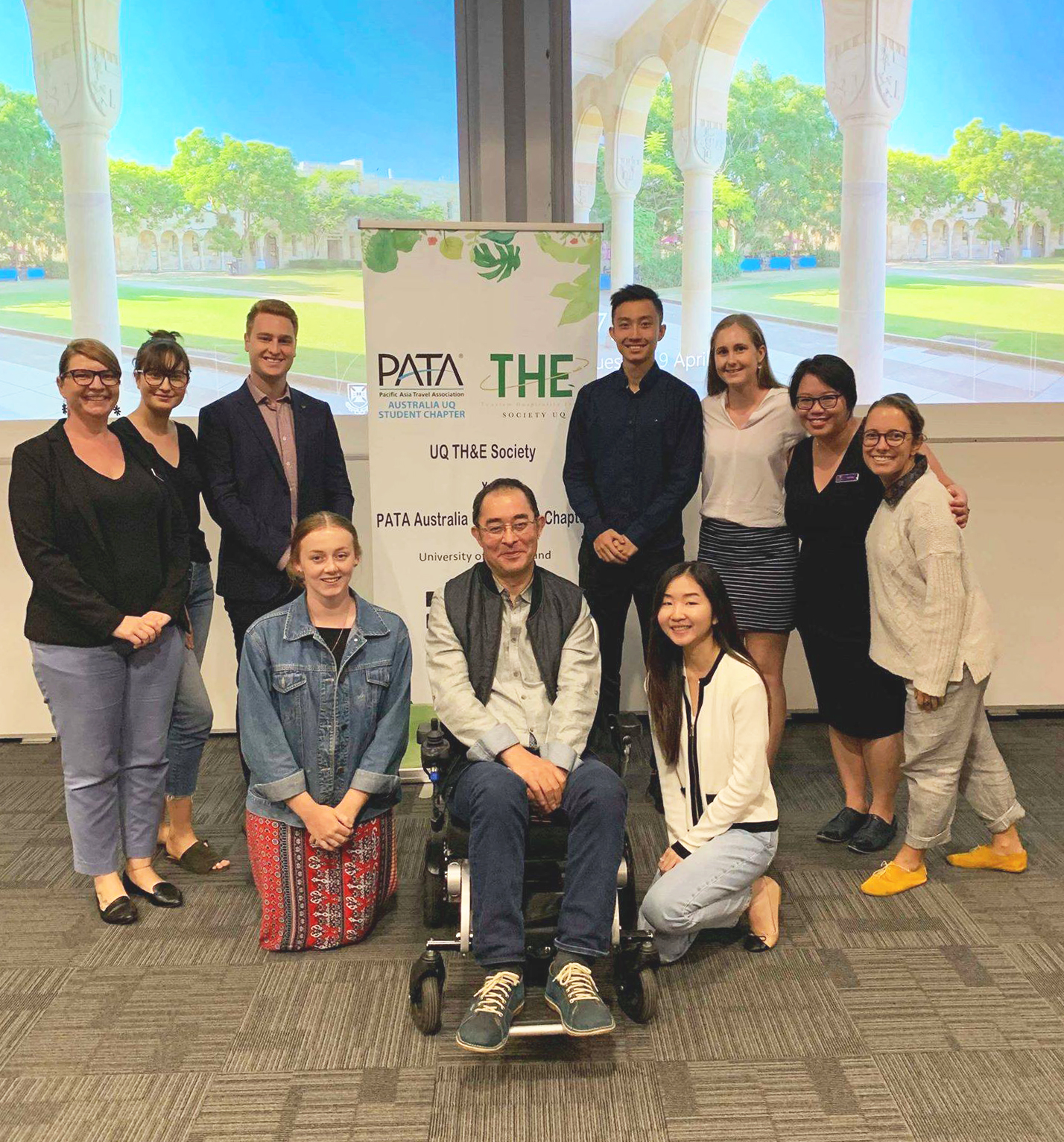The need for more accessible tourism options that cater to a wider range of needs and disabilities was the focus of a keynote speech from Lonely Planet, in a recent seminar at The University of Queensland (UQ), St Lucia.
The seminar, organised by UQ Business School students as part of their engagement with the Pacific Asia Travel Association (PATA), has flagged accessibility as an important aspect of tourism that continues to be overlooked, particularly in a global environment where peer-to-peer marketplace’s such as Airbnb continues to grow rapidly.

Guest speaker at the seminar, Lonely Planet’s Accessible Travel Manager Martin Heng, believes as we enter an era where it is becoming the norm to travel to different destinations away from home, tourism venues (hotels, landmarks, attractions, etc.) are faced with more and more problems to solve, in particular making sure venues are accessible to all patrons.
“The wheelchair symbol is the universal sign for people with disabilities, which is a problem, as it does not represent the other disabilities that are mainly invisible,” said Mr Heng.
He believes accessible tourism should be more focused on inclusivity as “it relates to a wide cross-section of people, including children in prams, disabilities and seniors, to name a few”.
Many guests with impairments have reported either being turned away or having to find a more suitable arrangement, causing many venues to lose business from guests with accessibility needs.
When becoming Lonely Planet’s Accessible Travel Manager, Mr Heng said, “I was surprised that invisible disabilities outnumber visible disabilities, and how much you can do to make sure there is accessibility without spending thousands of dollars”.
No business wants to lose money because their property is not fit for any guest. However, due to the lack of awareness surrounding accessible tourism, this is exactly what is currently happening according to Heng.
“Accessibility does not have to be expensive; however, if a venue is not accessible, they will lose a lot of business” he said.
According to new research by accessibility expert Sara Dolnicar, a Professor at UQ Business School, there are quick, cost-effective fixes to make accommodation accessible to those with impairments.
Professor Dolnicar’s study focused on ways to enable people with impairments to use Airbnb. Examples of these fixes include putting in extra railings in bathrooms, installing lights with a dimmer function – so those with visual impairments can turn the lights up as necessary, or choosing non-slippery tiles for those who are unsteady on their feet.
Professor Dolnicar’s research also found that many guests who had not disclosed their impairments, or properties that were listed as accessible but were not, had to find a more suitable property upon arrival, which caused stress for both sides.
“When we focus on accessible tourism, we mainly talk about infrastructure. Our research has shown that the biggest challenge is actually information,” says Professor Dolnicar.
“People with special needs simply cannot find out the information they require to assess whether a specific accommodation is suitable for them or not. That’s remarkable in this day and age, when everything seems to be on the internet.
“The quickest and easiest way forward to improving accessible tourism is to describe in detail all features of the accommodation that are relevant to people with different kinds of special needs, and to encourage them to ask should they require any additional information,” said Professor Dolnicar.
UQ embeds accessible tourism for the students in undergraduate and postgraduate studies working externally with industry partners and internally with student bodies such as the Tourism, Hospitality and Events Society UQ and who represent the PATA Australia UQ Student Chapter.
The seminar was organised to raise further awareness of this important topic. It was the inaugural event of the PATA student chapter, the first of its kind in Australia. As a PATA student chapter, UQ tourism, hospitality and events students have access to and can engage with a variety of international industry partners to continue delivering these keynotes.
 Interested in studying more on accessible tourism? UQ Business School teaches sustainable and accessible tourism practices in all our programs, including a Bachelor of International Hotel and Tourism Management, a Master of Tourism Leadership and a Master of Hotel, Tourism and Event Management.
Interested in studying more on accessible tourism? UQ Business School teaches sustainable and accessible tourism practices in all our programs, including a Bachelor of International Hotel and Tourism Management, a Master of Tourism Leadership and a Master of Hotel, Tourism and Event Management.
Media contact: Emma Pryor, UQ Business School Communications, e.pryor@business.uq.edu.au, +61 7 3346 4506



